
NANNING, March 20 (Xinhua) -- Online complaints targeting low-quality disposable tableware have raised health and environmental concerns among Chinese netizens once again.
Well-known actor Huang Bo recently posted a picture of a pair of throwaway chopsticks soaked in plain boiled water on Sina Weibo, the Chinese equivalent of Twitter.
"Within several minutes, the clean water turns into a dark yellow mixture, releasing a pungent smell," Huang wrote.
The post has been widely forwarded and discussed by netizens, with many expressing concerns about the quality of the disposable tableware they use.
"The money-greedy businessmen are making crazy bucks at the expense of our health. It is so sad!" wrote one netizen.
Many criticized the government's ability to supervise the companies that produce such tableware, while others expressed worry about the environmental impact of disposable chopsticks.
Mo Chuangrong, a professor with the school of environment of Guangxi University in south China's Guangxi Zhuang Autonomous Region, said the odor exuded by the disposable chopsticks may indicate that the chopsticks had been whitened using sulfur.
Government regulations state that disposable chopsticks made of green bamboo may be whitened through the use of sulfur, although the amount of sulfur dioxide remaining in the chopsticks should not exceed 600 mg per kilogram, Mo said.
Wooden chopsticks, on the other hand, may not be whitened using sulfur.
The World Health Organization recommends a daily sulfur intake of no greater than 0.7 mg per kilogram of body weight. Long-term exposure to high amounts of sulfur dioxide can cause damage to the human body, especially the respiratory system, according to experts.
So how did toxic chopsticks sneak into the market and become popular with so many of China's restaurants?
Mo said the chopsticks did not just pop up out of nowhere.
In China, disposable chopsticks do not have to be certified using quality safety standards, as is required for disposable plastic foam dinnerware. Low standards and huge profits have led to the rampant use of uncertified disposable chopsticks, Mo said.
The low-quality chopsticks are not the only disposable tableware that is causing health and environmental concerns.
In February, the National Development and Reform Commission (NDRC) lifted a 14-year ban on disposable dinnerware made of plastic foam.
Referred to by some as "white pollution," plastic-foam dinnerware, once thrown away, takes a long time to decompose and can therefore pose a great danger to the ecosystem.
On Sina Weibo, netizens expressed varying opinions about the lift of the ban, which will be effective starting May 1.
"Won't it be dangerous to our health if we use lots of plastic-foam lunchboxes?" wrote one Weibo user.
"There was actually a ban? But I see the boxes everyday!" wrote another Weibo user.
According to articles posted on the official website of the China Plastics Processing Industry Association, plastic-foam dinnerware is non-toxic and there is no solid scientific evidence that such tableware is carcinogenic.
Chen Xingle, chief physician at the Guangxi Center for Disease Prevention and Control, said some disposable dinnerware contains plasticizers and can come with health risks.
He said that if disposable tableware is heated in microwave ovens or used to hold food containing oil, it might release toxic substances.
He added that plastic-foam dinnerware "takes up a lot of natural resources," as the production process for such goods requires large amounts of oil.
Chen said that once the tableware is in use again, strict restrictions should be imposed, suggesting that manufacturers should follow national standards when making the products.
He said refuse-sorting will also be essential, adding that the government should raise public awareness of such efforts in order to protect the environment.
"The government should enhance its supervision to prevent uncertified products from entering the market," he said.
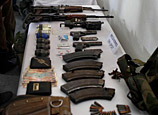

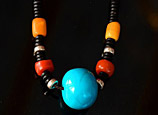
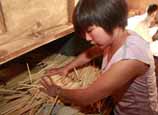

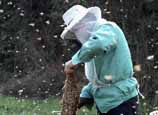

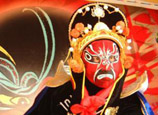
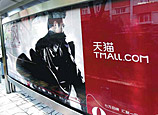
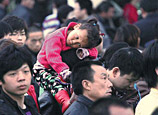






 Central China tornado kills 3, injures 30
Central China tornado kills 3, injures 30


![]()
